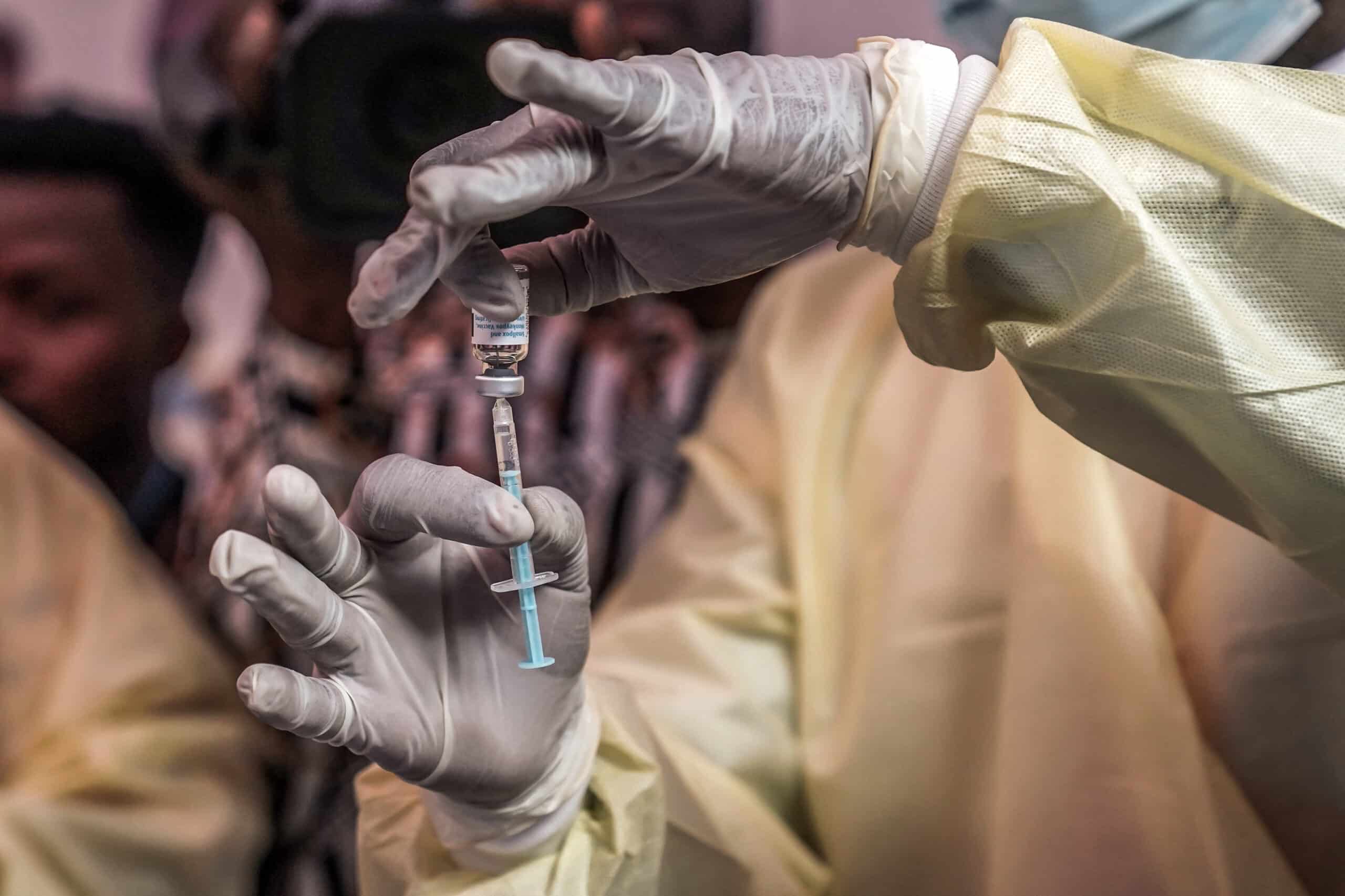Development of a large Danish single-centre retro- and prospective transgender cohort using a web-based platform: a study protocol of a transgender cohort study
Development of a large Danish single-centre retro- and prospective transgender cohort using a web-based platform: a study protocol of a transgender cohort study
Referrals for gender-affirming healthcare services have surged in recent decades, presumably driven by increased visibility, acceptance and reduced barriers to care. Despite these advances, transgender and gender-diverse individuals continue to face significant mental health challenges, including elevated rates of anxiety, depression as well as high prevalence of autistic traits. Gender-affirming hormonal treatment (GAHT) has been suggested to improve mental health and quality of life (QoL) among transgender individuals; however, the short- and long-term treatment effects of GAHT are not yet fully understood. Therefore, this study aims to establish a comprehensive cohort of transgender individuals at the Centre for Gender Identity (CGI), Aalborg University Hospital, Denmark, to enhance understanding and treatment outcomes.
The Transgender Cohort (TraCK) will recruit participants from February 14, 2024, with recruitment occurring continuously alongside yearly follow-up. This single-centre cohort study will include both retrospective and prospective data collection. Transgender individuals referred to CGI will be invited to participate in the study via the Danish digital mail system called e-Boks. Participants must provide informed consent and complete a baseline questionnaire. Data will be collected from self-reported questionnaires and medical records across multiple specialists. Self-reported questionnaires include WHO-Quality of Life BREF, Eating Disorders Examination Questionnaire, Autism Spectrum Quotient, Transgender Congruence Scale, and Gender Minority Stress and Resilience Measure. Medical records will provide information on demographics, mental health, physical health, and gender-affirming treatment details. Data will be managed using REDCap, ensuring compliance with GDPR and the National Data Protection Act.
While recognising the potential privacy risks associated with data collection, the study considers these outweighed by the benefits of advancing knowledge on gender diversity and the impacts of gender-affirming care. The North Jutland Region Ethics Committee reviewed the project, determining no formal approval was needed, but it was registered and approved (no. F2024-012) by the North Jutland Region. Findings will be disseminated through peer-reviewed journals, conferences, and accessible reports for participants.
This study is registered with the North Jutland Region (no. F2024-012). Recruitment and data collection began on February 14, 2024, and will continue alongside yearly follow-up. Transgender individuals, transgender and gender-diverse, transgender cohort, transgender health, transgender research, cohort study, gender-affirming care.
http://creativecommons.org/licenses/by-nc/4.0/
This is an open access article distributed in accordance with the Creative Commons Attribution Non Commercial (CC BY-NC 4.0) license, which permits others to distribute, remix, adapt, build upon this work non-commercially, and license their derivative works on different terms, provided the original work is properly cited, appropriate credit is given, any changes made indicated, and the use is non-commercial. See: http://creativecommons.org/licenses/by-nc/4.0/.
If you wish to reuse any or all of this article please use the link below which will take you to the Copyright Clearance Center’s RightsLink service. You will be able to get a quick price and instant permission to reuse the content in many different ways.
Transgender and gender-diverse (TGD) individuals have a gender identity that does not match the sex assigned to them at birth.1 To address gender incongruence, gender-affirming healthcare services can be provided. Over the past decades, there has been a significant increase in referrals for these services.2 3 This rise in referrals may be attributed to the notable increase in visibility, acceptance and destigmatisation of transgender people, likely driven by greater awareness through the internet and social media.4 Another contributing factor could be lowered barriers to healthcare, enabling more individuals to obtain gender-affirming treatment.4
However, transgender individuals still face a variety of challenges in their daily lives, including mental health problems such as anxiety, depression, and eating disorders as well as a high prevalence of autistic traits.5–10 Studies have shown that the mental health and quality of life (QoL) among transgender individuals can be improved by gender-affirming hormonal treatment (GAHT).11–14 GAHT consists of either feminising or masculinising hormone therapy, depending on the assigned sex at birth. In Europe, feminising GAHT commonly includes oestrogen in combination with testosterone-blocking treatment consisting of either cyproterone acetate, spironolactone or gonadotropin-releasing hormone agonist. Masculinising GAHT consists only of testosterone.13 15–18
There are two overall goals of GAHT, including (1) a reduction of endogenous sex hormones to achieve a decrease in secondary sex characteristics and (2) a replacement of endogenous sex hormones to develop secondary sex characteristics that align with the individual’s gender identity.19 The critical effects of feminising GAHT occur through stimulation of secondary sex characteristics, including breast growth, fat redistribution at the hips, decreased body hair, skin softening, and reduced erections.17 19 Masculinising GAHT induces virilisation, which leads to an increase in facial and body hair growth, a deeper voice, an increase in muscle mass, and amenorrhea.19 20
Besides the gender-affirming effects of GAHT, side effects may occur. Common side effects of feminising GAHT include decreased libido, mood swings, weight gain, increased risk of venous thromboembolism, and cardiovascular disease.21 22 Common side effects of masculinising GAHT include increased risk of acne, alopecia, erythrocytosis, sleep apnoea, and hypertension.19 21
Gender-affirming healthcare is offered in most European countries and is often provided by multidisciplinary centres.2 23–25 In Denmark, comprehensive support for transgender individuals is offered by the Danish free public healthcare service, and medication is partially reimbursed.2 These healthcare services include GAHT and gender-affirming surgeries and are provided by a mandatory multidisciplinary team including psychologists, psychiatrists, gynaecologists, endocrinologists, and plastic surgeons in one of the three public Centres for Gender Identity.2 26
Despite the crucial role of specialised healthcare centres in providing personalised, comprehensive and professional care for transgender individuals, recent studies from Denmark have shown that hormone use outside of these services is common among this patient group with a rate of approximately 20%.27 28 This rate reflects an unmet need in the Danish healthcare service and is influenced by the easy access to medication purchased via the internet.27 28 Notably, it has been reported that individuals who use hormones outside of healthcare services are often less aware of potential side effects, leaving them at a higher health risk compared with those who seek care from qualified physicians.19 21 22 29
All of this illustrates the importance of addressing the challenges of transgender individuals and providing the appropriate treatment. Moreover, there is a need to strengthen the evidence base concerning short- and long-term treatment effects through large, prospective cohort studies to guide the care of individuals experiencing gender incongruence.2 26 With an extended knowledge of the challenges faced by transgender individuals, increasing awareness of effective treatments, and greater knowledge regarding the impact of these treatments on QoL, mental well-being and physical health, healthcare professionals can provide stronger evidence-based recommendations. Hence, it is crucial to obtain a systematic overview of transgender individuals and to monitor treatment effects and consequences.
This study aims to establish a large transgender cohort at the Centre for Gender Identity (CGI), Aalborg University Hospital, Denmark. This cohort facilitates comprehensive patient registration and follow-up and will form the basis for future research. The purpose is to improve the understanding of needs, treatment, results, morbidities and QoL of transgender individuals.
The Transgender Cohort called TraCK (Transkohorte ved Center for Kønsidentitet) is based at the CGI and is developed in a multidisciplinary collaboration with the Department of Obstetrics and Gynaecology, Department of Endocrinology and the Psychiatric Research Unit at Aalborg University Hospital, as well as the Department of Health Science and Technology at Aalborg University. The study plans to recruit participants from 14 Feruary 2024, and recruitment will occur continuously alongside yearly follow-up.
This study is a single-centre cohort study with retro- and prospective data collection.
All transgender individuals referred to the CGI, for evaluation of gender incongruence, are recruited by sending an invitation via the Danish authorities’ digital mailbox, called e-Boks. To participate in the study, participants must provide informed consent and complete a questionnaire at enrolment.
This cohort study contains comprehensive data collected from both self-reported questionnaires and medical records from psychologists, psychiatrists, gynaecologists, endocrinologists and other specialists, if appropriate and relevant, eg, otorhinolaryngologists (table 1).
Table 1
Overview of the questionnaires and information from medical records included in the Transgender Cohort (TraCK) at the Centre for Gender Identity
At baseline, six self-reported questionnaires are included: one self-developed questionnaire and five validated self-reported questionnaires in Danish. The CGI researchers developed a questionnaire called TraCK-Q to study demographics, gender identity, lifestyle, mental well-being and physical health. The five validated self-reported questionnaires comprise WHO-Quality of Life BREF (WHOQOL-BREF),30 Eating Disorders Examination Questionnaire (EDE-Q),31 Autism Spectrum Quotient (AQ),32 Transgender Congruence Scale (TCS)33 and Gender Minority Stress and Resilience Measure (GMSRM).34 These five questionnaires are given once a year after baseline. These questionnaires are employed to assess various aspects of transgender individuals’ well-being. The WHOQOL-BREF, for instance, comprehensively evaluates QoL by examining physical health, psychological aspects, social relationships and environmental factors.35 36 The EDE-Q measures restraint, eating, shape and weight concerns.31 Furthermore, the AQ questionnaire measures autistic traits by assessing five domains, including social skills, attention switching, attention to detail, communication and imagination.32 The TCS is included to measure appearance congruence and gender identity acceptance.33 Lastly, the GMSRM is used to investigate nine areas: gender-related discrimination, gender-related rejection, gender-related victimisation, non-affirmation of gender identity, internalised transphobia, negative expectations for future events, nondisclosure, community connectedness and pride.34
Data from the participant’s medical records will be extracted. This information is based on specific medical record templates that enable consistent data to be collected. The psychologic/psychiatric records can include information on experiences of gender incongruence in childhood, puberty/adolescence and adulthood, awareness of gender diversity, self-recognition of own gender identity, age at coming out, reflection period concerning gender-affirming treatments, sexual orientation, how gender incongruence might have impacted sexual debut and experiences, past/current psychiatric diagnoses, previous psychological counselling and previous trauma,
The gynaecologic and endocrinologic records include information on previous and current prescribed GAHT, self-medication, anticonception, objective findings (height, weight, body mass index (BMI), blood pressure), results from blood tests already collected as a part of their clinical evaluation (follicle-stimulating hormone (FSH), luteinising hormone (LH), thyroid-stimulating hormone (TSH), haematocrit, creatinine, alanine transaminase (ALT), alkaline phosphatase, free and total testosterone, oestradiol, prolactin, potassium, cholesterol, low-density lipoprotein (LDL), high-density lipoprotein (HDL), sex-hormone-binding globulin (SHBG)), chronic diseases, additional medication, egg- and sperm preservation and human papillomavirus vaccination.
Additionally, information from outpatient visits regarding the effects of GAHT and possible side effects is included. Lastly, information regarding approval or denial related to GAHT, mastectomy or breast construction, bottom-, laryngeal- and glottoplastic surgeries is included in the cohort, as well as reasons for treatment discontinuation and dropout.
In the future, a clinical biobank containing blood samples will be established to monitor short- and long-term effects of gender-affirming treatment. The biobank will be located at the Department of Health Sciences and Technology at Aalborg University.
Data will be collected, stored and managed using Research Electronic Data Capture (REDCap),37 38 an electronic data capture tool hosted at Aalborg University Hospital, Denmark.37 38 REDCap is a secure, web-based software platform designed to support data capture for research studies, providing (1) an intuitive interface for validated data capture; (2) audit trails for tracking data manipulation and export procedures; (3) automated export procedures for seamless data downloads to common statistical packages; and (4) procedures for data integration and interoperability with external sources. Personal information will be managed in compliance with GDPR and the National Data Protection Act and was registered in North Denmark Region’s internal directory, ID number F2024-012.37 38
There is a risk of selection bias in this cohort, as it is voluntary to participate. Also, transgender individuals not referred to the CGI will not be included. Additionally, loss to follow-up can occur due to non-response or dropout. It is important to be aware of this, as it can potentially affect the results gained from this cohort. Although the questionnaire data is mainly collected for research purposes, some persons seeking treatment might be hesitant to give anamnestic details due to fear of being denied treatment.
This cohort intends to invite all TGD individuals referred to the CGI. Every year approximately 400 TGD individuals are referred to the CGI, and half of them initiate treatment. Previous experience has shown a high response rate within this patient group, reflecting a high motivation level. Based on this, we expect a participation rate of more than 50%, which will result in an expected 1000 new participants being enrolled in this cohort over a 5 year period.
Pilot testing involved seven project staff members and six individuals of the same age as the TraCK participants but not affiliated with CGI. They completed the questionnaires and provided feedback to evaluate face and content validity. Subsequently, the questionnaires were pilot-tested by 16 TGD individuals from the CGI, who as stakeholders provided feedback regarding the relevance, wording and appropriateness of the questions and whether they felt included in the questions. The pilot testing resulted in changes such as phrasing, layout, grammar and typing errors.
Data from this cohort will be analysed using R (V.4.4.2, 2024 or later), SAS (V.9.3 or later) or STATA V.12 or later (StataCorp 194, Texas, USA). Depending on the distribution, continuous data will be presented as either means (±SD) or medians (range or appropriate percentiles). T-tests and other parametric tests are used to compare normally distributed data, and the Wilcoxon test and Mann–Whitney U test are used to compare non-normally distributed data. The X2 test or Fisher’s exact test will be used to compare frequencies. If it is considered relevant to adjust for potential confounders in analytical studies, relevant regression analyses will be performed. In case of missing data, imputation methods are performed if appropriate. Future cohort studies using data from the TraCK will adhere to the STROBE guidelines.
TGD individuals from the CGI were involved in the development of the questionnaire by testing, commenting and assessing the burden and time required to complete the questionnaire. The TGD individuals had the opportunity to provide feedback in text boxes on the bottom of each page of the questionnaires. Their feedback was taken into consideration in the further development of the questionnaire and the cover letter.
Potential risks associated with this study centre around data collection and privacy concerns. We acknowledge that the questionnaire contains personal and sensitive information, potentially leading to negative, uncomfortable or distressing emotions among some participants. Hence, it is crucial to always uphold the dignity and autonomy of the participants. However, we consider that the benefits outweigh the minimal risks, as this cohort will generate new knowledge and understanding related to psychological and physiological aspects of gender identity and both short- and long-term treatment effects. This comprehension is essential for enhancing the evidence base regarding gender-affirming care. The project was submitted to the Ethics Committee for the North Jutland Region (no. 108239), which assessed on November 14, 2023, that this project does not require approval. However, TraCK has been registered and approved on February 1, 2024, by the North Jutland Region (no. F2024-012). The findings from this cohort will be disseminated through international peer-reviewed journals and national and international congresses. Besides this, participants involved in this study can gain insight into the latest research by contacting the database administrator.
TGD individuals from the Centre for Gender Identity were involved in the development of the questionnaire by testing, commenting and assessing the burden and time required to complete the questionnaire. The TGD individuals had the opportunity to provide feedback in text boxes on the bottom of each page of the questionnaires. Their feedback was taken into consideration in the further development of the questionnaire and the cover letter.










:max_bytes(150000):strip_icc()/Parents-BestandWorstStatesforWorkingDads-8334a85bee40442caa208f6169540dcd.jpg)
